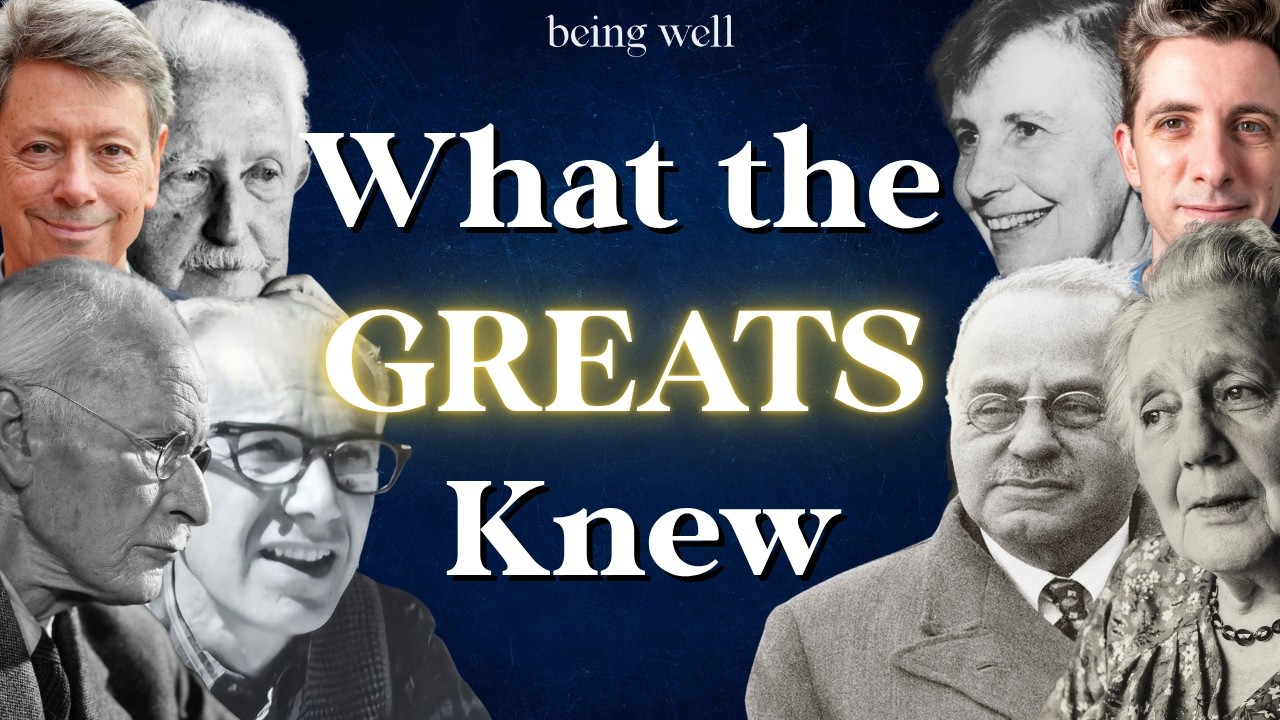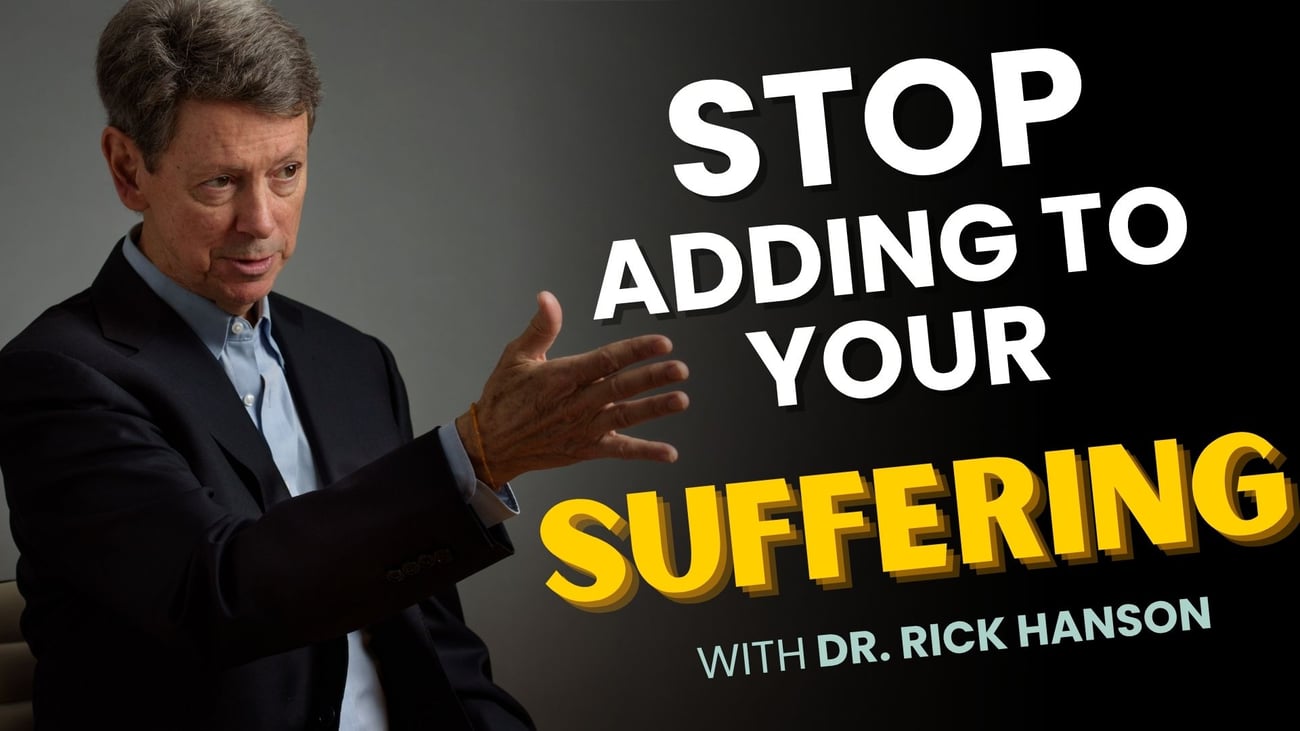 |
Just One Thing |
|
|
|
Simple Practices for Resilience and Happiness from |
|
DR. RICK HANSON |
 |
|
|
|
|
Grief touches every part of life. It can show up in obvious ways, like the loss of a loved one, or in quiet, hidden forms—changes that no one else sees but you. Whatever your experience, grief can feel heavy, confusing, or isolating. Join me on August 24 for a FREE, live webinar on Navigating Loss where I'll be sharing ways to meet grief with more understanding and self-compassion. |
|
|
|
 |
What is an open heart? |
THE PRACTICE: |
Put No One Out Of Your Heart. |
|
|
— Why? — |
|
We all know people who are, ah, . . . challenging. It could be a critical parent, a bossy supervisor, a relative who has you walking on eggshells, a nice but flaky friend, a co-worker who just doesn't like you, a partner who won't keep his or her agreements, or a politician you dislike. Right now I'm thinking of a neighbor who refused to pay his share of a fence between us.
As Jean-Paul Sartre put it: "Hell is other people."
Sure, that's overstated. But still, most of a person's hurts, disappointments, and irritations typically arise in reactions to other people.
Ironically, in order for good relationships to be so nurturing to us as human beings - who have evolved to be the most intimately relational animals on the planet - you must be so linked to others that some of them can really rattle you!
So what can you do?
Let's suppose you've tried to make things better - such as taking the high road yourself and perhaps also trying to talk things out, pin down reasonable agreements, set boundaries, etc. - but the results have been partial or nonexistent.
At this point, it's natural to close off to the other person, often accompanied by feelings of apprehension, resentment, or disdain. While the brain definitely evolved to care about "us," it also evolved to separate from, fear, exploit, and attack "them" - and those ancient, neural mechanisms can quickly grab hold of you.
But what are the results? Closing off doesn't feel good. It makes your heart heavy and contracted. And it primes your brain to be more tense and reactive, which could get you into trouble, plus trigger the other person to act worse than ever.
Sometimes you do have to hang up the phone, block someone on Facebook, turn the channel on TV, or stay at a motel when visiting relatives. Sometimes you have to put someone out of your business, workgroup, holiday party list - or bed.
In extreme situations such as abuse, it may feel necessary to distance yourself utterly from another person for a while or forever; take care of yourself in such situations, and listen to that inner knowing about what's best for you. But in general:
You never have to put anyone out of your heart. |
— How? — |
|
When your heart is open, what's that feel like? Physically, in your chest - like warmth and relaxation - and in your body altogether. Emotionally - such as empathy, compassion, and an even keel. Mentally - like keeping things in perspective, and wishing others well.
Feel the strength of being openhearted, wholehearted. Be not afraid and be of good heart. Paradoxically, the most open person in a relationship is usually the strongest one.
Get a sense of your heart being expansive and inclusive, like the sky. The sky stays open to all clouds, and it isn't harmed by even the stormiest ones. Keeping your heart open makes it harder for others to upset you.
Notice that an open heart still allows for clarity about what works for you and what doesn't, as well as firmness, boundaries, and straight talk. Mahatma Gandhi, Nelson Mandela, and the Dalai Lama are famous for keeping their hearts open while also being very effective.
Seeing all this, make a commitment to an open heart.
In this light, be mindful of what it feels like - physically, emotionally, mentally - to have your heart closed to a particular person. Be aware of the seemingly good reasons the reactive brain/mind throws up to justify this.
Then ask yourself, given the realities of this challenging person, what would have been a better path for you? For example, maybe you should have gotten more support from others or been more self-nurturing, so you wouldn't have been as affected. Or spoken up sooner to try to prevent things from getting out of hand. Or managed your internal reactions more skillfully. Maybe you've done some things yourself to prompt the other person to be difficult. Whatever these lessons are, there's no praise or blame here, just good learning for you.
And now, if you're willing, explore opening your heart again to this person. Life's been hard to him or her, too. Nothing might change in your behavior or in the nature of the relationship. Nonetheless, you'll feel different - and better.
Last, do not put yourself out of your heart. If you knew you as another person, wouldn't you want to hold that person in your heart? |
| Read this Online |
|
|
Know someone who could keep a more open heart? |
|
Share this Just One Thing practice with them! |
|
Share on Facebook | Tweet on X | Forward this Email |
|
|
|
|
|
|
NEW ON THE BEING WELL PODCAST |
9 Lessons from the Great Minds of Psychoanalysis |
 |
|
Dr. Rick and Forrest explore the evolution of psychoanalysis after Freud, highlighting key ideas from figures like Adler, Klein, Winnicott, and Hillman. They track how the field expanded from focusing on the individual ego all the way out to exploring the existential forces that shape who we are. They focus on what lessons we can take away from each of these influential thinkers into our everyday lives. |
| Check out the Episode |
|
|
|
|
|
|
NEW FROM THE WEDNESDAY MEDITATIONS + TALKS |
Why We Suffer—and How to Stop Adding to the Pain |
 |
|
Last week I offered a live meditation on Resting in Innate Wellbeing, followed by a talk on Why We Suffer—and How to Stop Adding to the Pain, and I hope you'll check it out.
If you haven't yet, sign up to join me every week for this free, live offering.
|
| Check It Out |
|
|
|
|
|
|
MORE GOOD STUFF |
|
|
|
SCIENCE NEWS (VIEW ARCHIVE HERE)
According to this new study, a little lithium might help keep your brain younger and your memory sharp, maybe even warding off Alzheimer’s.
|
|
|
|
FOR PARENTS
Parenthood is incredibly demanding, leading to physical and emotional depletion that impacts millions of parents. Understanding these challenges can help parents recognize that their exhaustion is not a personal failing, but a result of complex environmental and systemic factors that require proactive self-care and support.
|
|
|
|
REWIRING YOUR BRAIN MEGA-SUMMIT
I’m very pleased to be among the presenters for the 2025 Rewiring Your Brain Mega-Summit, from August 19-26, 2025. This powerful event offers a science-based path to restore balance in the brain, release stored trauma, and integrate proven practices for lasting healing, resilience, and personal growth. Register for FREE.
|
|
|
|
|
|
|
HAVE YOU READ IT YET? |
Resilient |
 |
|
Learn how to develop key inner strengths – like grit, gratitude, and compassion – to stay calm, confident, and happy no matter what life throws at you. Available in Hardcover, Paperback eBook, and Audiobook, wherever books are sold.
|
| Get Your Copy |
|
|
|
|
|
|
WORDS OF WISDOM |
"Do not put yourself out of your heart. If you knew you as another person, wouldn't you want to hold that person in your heart?" |
|
— RICK HANSON, PHD |
|
|
|
|
JUST ONE THING (JOT) is the free newsletter that suggests a simple practice each week for more joy, more fulfilling relationships, and more peace of mind. A small thing repeated routinely adds up over time to produce big results.
Just one thing that could change your life.
(© Rick Hanson, 2024) |
|
|
|
|
|
|
|
|